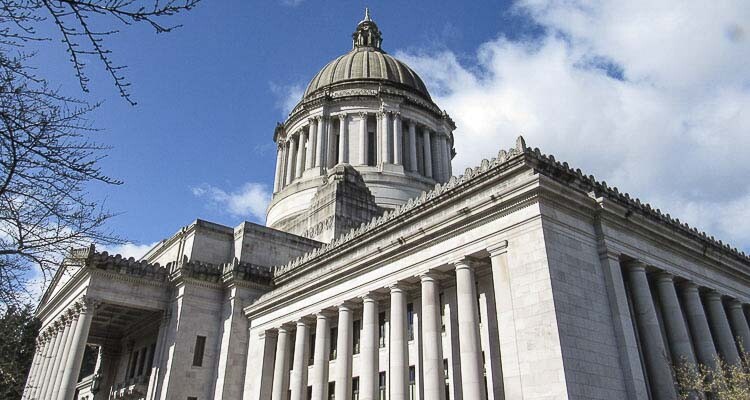
Washington’s ranking at 32 rests on issues around government efficiency (ranked 33rd) and regulatory freedom (40)
Chris Corry
Washington Policy Center

Pullman Washington-based Schweitzer Engineering Laboratories published their 2023 Index of Freedom report. SEL is a global leader in creating products that protect, control, and automate power grids worldwide.
The report ranks all 50 states based on government efficiency, regulatory freedom, and energy resiliency. The top-performing states for 2023 were Utah, South Dakota, North Dakota, Idaho and Nevada. New Jersey, California, Maine, Vermont, and New York were the worst-performing states. Washington came in at 32 on the list (an improvement from 36 in 2022).

The report’s methodology for government efficiency, regulatory freedom, and energy resiliency breaks down multiple source reports on a weighted basis. For example, in energy resiliency, the report uses the Citizens Utility Board and EPA reports for affordability rankings (45%), reliability rankings (45%), and electric deregulation (10%).
The SEL report focuses on states where they have physical operations, including Washington, Idaho, Indiana, North Carolina, and Arizona.
Washington’s ranking at 32 rests on issues around government efficiency (ranked 33rd) and regulatory freedom (40). The state ranked 8th in energy resiliency.
The report notes:
“Washington suffers from a challenging regulatory climate and poor labor rates, driven by some of the most progressive prevailing wage and minimum wage laws in the nation. While Washington has been buoyed by a lack of a personal income tax, a newly implemented 7 percent capital gains tax sets a dangerous and highly irregular precedent, as the Washington State Supreme Court characterized this tax as an excise tax and not an income tax, as does the IRS and every other state in the country. This ruling opened the door for more bad tax policy in the state.”
Washington’s energy resiliency score bolsters the state’s overall ranking with robust, reliable, affordable hydroelectric power. The report warns of the negative impacts of attempts to lessen or remove this critical power source.

Washington falls short compared to Idaho, which ranked 4th overall. The state has improved overall due to a change in the state’s income tax to a flat tax on personal and corporate income. This also included rebates back to citizens. They also lead the nation in regulatory freedom, which has led to robust growth in the state. The report notes that energy resiliency has suffered because of reliability, which can harm businesses.

You can find the entire report here.
Chris Corry is the director of the Center for Government Reform at the Washington Policy Center.
Also read:
- Opinion: Employers shouldn’t pay workers not to work: Paying people to strike should be a union’s jobElizabeth New of the Washington Policy Center argues that Senate Bill 5041 would burden employers and taxpayers by using unemployment funds to pay striking workers instead of requiring unions to support their members.
- POLL: Should Washington Raise the 1% Cap on Property Tax Increases?Clark County Today’s weekly poll asks whether Washington lawmakers should raise the current 1% cap on annual property tax increases.
- Letter: The more you knowCamas resident Anna Miller criticizes a recent remark by Rep. Jasmine Crockett as racist and demeaning, and outlines Republican contributions to civil rights history in her letter to the editor.
- Letter: City vehicles speeding on the highwaysVancouver resident Peter Bracchi raises concerns about excessive speeding by city-owned vehicles, based on GPS data received through a FOIA request.
- Opinion: The stage is set for a battle royaleRep. John Ley outlines key legislative battles in Olympia, raising concerns about tax hikes, tolling, and spending priorities in Washington state.










